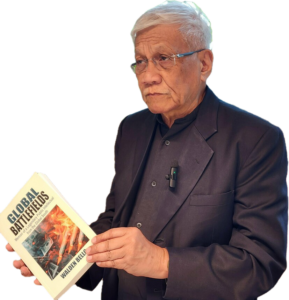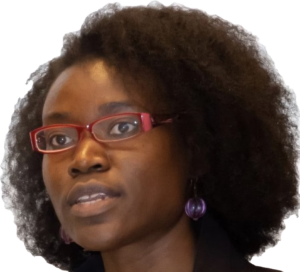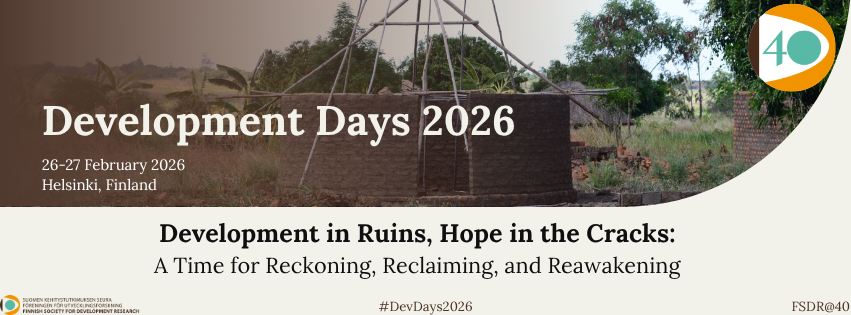KEYNOTE LECTURE
Walden Bello is a world-renowned scholar and activist. He is currently a senior fellow in the Department of Sociology at the State University of New York at Binghamton and a retired professor at the University of the Philippines. He is also the co-founder of Focus on the Global South, a leading progressive think tank in Southeast Asia based in Bangkok that is affiliated with Thailand’s Chulalongkorn University. He served in the Philippine House of Representatives from 2009 to 2015 and ran for vice president in the Philippine elections of 2022. In 2023, Amnesty International Philippines honored him as the “Most Distinguished Human Rights Defender.”
 An academic with a global reputation, Bello obtained his doctorate in sociology from Princeton University in the United States in 1975 and his bachelor of arts from Ateneo de Manila University in 1966. He is the author or co-author of 25 books on topics ranging from the political economy of the Philippines to the rise of the Right globally to the brewing conflict between China and the United States. His latest work is Global Battlefields: Memoir of a Legendary Public Intellectual from the Global South (Atlanta: Clarity Press, 2025).
An academic with a global reputation, Bello obtained his doctorate in sociology from Princeton University in the United States in 1975 and his bachelor of arts from Ateneo de Manila University in 1966. He is the author or co-author of 25 books on topics ranging from the political economy of the Philippines to the rise of the Right globally to the brewing conflict between China and the United States. His latest work is Global Battlefields: Memoir of a Legendary Public Intellectual from the Global South (Atlanta: Clarity Press, 2025).
He received the Right Livelihood Award (aka the Alternative Nobel Prize) in 2003 for his work in exposing the negative side of corporate-driven globalization and was named Outstanding Public Scholar by the International Studies Association in 2008. He has been called “the world’s leading no-nonsense revolutionary” by renowned Canadian author Naomi Klein. He was also praised “as the world’s best guide to American exploitation of the globe’s poor and defenceless” by the late Chalmers Johnson, the world’s leading authority on East Asia’s economic development.
Bello’s books include Counterrevolution: The Global Rise of the Far Right (Nova Scotia: Fernwood, 2019), Paper Dragons: China and the Next Crash (London: Bloomsbury/Zed, 2019), Capitalism’s Last Stand (London: Bloomsbury/Zed, 2013), Food Wars (London: Verso, 2009), and Dilemmas of Domination: The Unmaking of the American Empire (New York: Henry Holt, 2005). Over the last 50 years, he has authored hundreds of studies and articles that have come out in many publications, including The New York Times, Guardian, Bangkok Post, Le Monde, Le Monde Diplomatique, Foreign Policy, Dissent, International Sociology, Foreign Policy in Focus, and The Nation. He is a regular commentator for Rappler, the online publication founded by Nobel Peace Prize winner Maria Ressa.
A storied activist during the martial law regime of Ferdinand Marcos, he organized a series of break-ins into the World Bank headquarters in Washington, DC, to steal thousands of pages of classified documents. This led to the best-selling expose Development Debacle: The World Bank in the Philippines which played a key role in rallying popular support against the regime. Noam Chomsky, the world’s leading progressive thinker, described the book as providing “remarkable insights into the policies of the World Bank and…the social costs of their experiments with people’s lives.”
Arrested multiple times by US authorities for civil disobedience, Bello led the seizure of the Philippine Consulate General in San Francisco in 1978. This resulted in his conviction and imprisonment by the US government when he and his co-accused refused to recognize the authority of the court at their trial, cursed the judge, and defiantly walked out of the courtroom, an act for which they were immediately apprehended by US marshals. Prison officials, however, were forced to release Bello and his companions from the San Bruno County Jail after they went on a highly publicized hunger strike out of fear that their example could provoke the prison population to riot.
During EDSA Revolution, on February 26, 1986, Bello led the takeover of the Philippine Embassy in Washington, DC, expelling Marcos’ diplomats and then turning over the building to representatives of the new government of Corazon Aquino.
Bello made the only recorded resignation from the Philippine Congress on a question of principle in March 2015 after serving in the House of Representatives for six years. Bello’s party Akbayan was then allied to the administration of then-President Benigno Aquino III and he resigned because he could no longer support Aquino. The reasons for his resigning a year before the end of his third term were to protest Aquino’s double standards, where the president tolerated corruption among his allies but used it as a weapon against his enemies; his refusal to accept command responsibility for the Mamasapano tragedy which led to the death of 44 policemen; and his entering into the Enhanced Defense Cooperation Agreement with the United States.
Bello was characterized by the government’s Philippine News Agency as “one of the staunchest critics of the [Rodrigo] Duterte administration,” which was in office from 2016 to 2022. He has been charged with “cyber libel” by the camp of Vice President Sara Duterte, the former president’s daughter, for fearlessly criticizing her record as an elected official during the 2022 electoral campaign.
KEYNOTE CONVERSATION: “Alternative Development in a Post-Aid World”
Abstract: Six years ago, Robtel Neajai Pailey re-invigorated a debate about the colonial underpinnings of mainstream development and its racist logics with an influential journal article entitled “De-centring the ‘White Gaze’ of Development”. She has since distinguished herself as a critical public voice on decoloniality. In this ‘keynote conversation’, Pailey will reflect on whether the international aid system can be considered a catalyst for socio-economic transformation or a tool of neo-colonial control. She will trace the evolution of international aid, explore varying perspectives on development assistance and highlight alternatives to the great aid debate. If you’ve ever wondered whether a post-aid world is possible, join Pailey for an illuminating discussion about how the so-called  Global South can move beyond aid.
Global South can move beyond aid.
Robtel Neajai Pailey is Assistant Professor in International Social and Public Policy at The London School of Economics and Political Science (LSE). A Liberian scholar-activist working at the intersection of Critical Development Studies, Critical African Studies and Critical Race Studies, she centres her research on how structural transformation is conceived and contested by local, national and transnational actors from ‘crisis’-affected regions of the so-called Global South.
Pailey is author of the monograph Development, (Dual) Citizenship and Its Discontents in Africa: The Political Economy of Belonging to Liberia (Cambridge University Press, 2021), which won the 2022 African Politics Conference Group Best Book Award, the 2023 African Studies Association of Africa Pius Adesanmi Memorial Award for Excellence in African Writing, and the LSE inaugural Rising Star Impact Prize in 2025.
Her current book project, Africa’s ‘Negro’ Republics, examines how slavery, colonialism and neoliberalism in the 19th, 20th and 21st centuries, respectively, have shaped the adoption and maintenance of clauses barring non-blacks from obtaining citizenship in Liberia and Sierra Leone.
She completed BA degrees in African Studies and English Literature at Howard University, an MSc in African Studies at the University of Oxford and a PhD in Development Studies at SOAS, University of London.
Visit https://www.robtelneajaipailey.com/ for more information.
